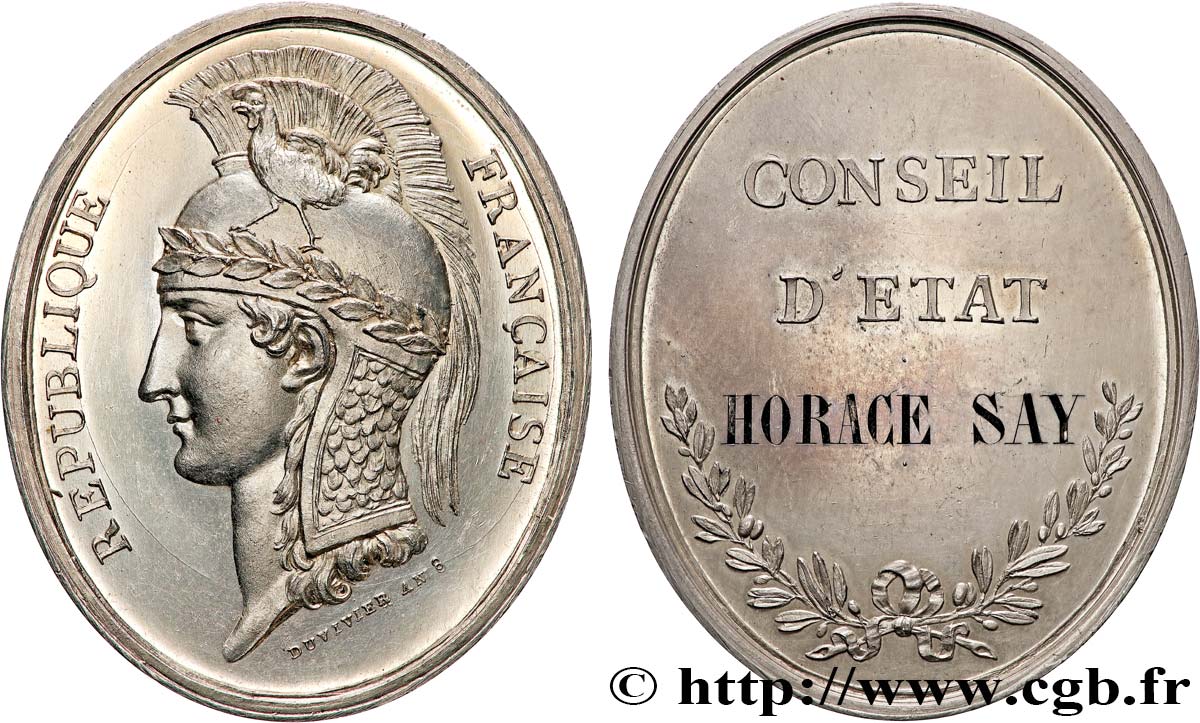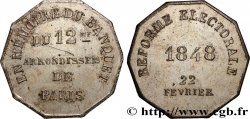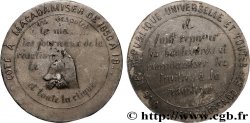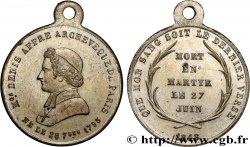Live auction - fme_895987 - DEUXIÈME RÉPUBLIQUE Médaille, Conseil d’État, Horace Émile Say
Чтобы принять участие в торгах, вы должны войти в систему и стать подтвержденным участником аукциона. Войдите, чтобы сделать ставку. Ваш аккаунт будет подтвержден в течение 48 часов. Не ждите до закрытия торгов, чтобы зарегистрироваться.Сделав ставку на данный товар, вы вступаете в юридическое соглашение на покупку выбранного товара и нажатием кнопки «Сделать ставку» подтверждаете принятие вами условий интернет-аукционов cgb.fr.
Ставка может бить сделана только в полном эквиваленте евро. Торги закроются согласно времени, указанному в описании товара, все ставки, сделанные после закрытия торгов, учитываться не будут. Не следует откладывать предложение вашей ставки до последнего момента, так как система может не успеть обработать вашу заявку, и ваша ставка не будет принята. Более детальную информацию вы найдёте здесь: FAQ по интернет-аукционам.
Все ставки победителей подлежат комиссии 18%.
Все ставки победителей подлежат комиссии 18%.
| Оценить : | 400 € |
| Цена : | 410 € |
| Максимальная предлагаемая цена : | 410 € |
| Конец торгов : | 13 February 2024 17:26:45 |
| Участников : | 4 Участников |
Тип Médaille, Conseil d’État, Horace Émile Say
Дата: (1849-1851)
Металл: silver
Диаметр: 46,5 mm
Ориентация осей монеты: 12 h.
Гравер DUVIVIER Benjamin (1730-1819)
Вес: 37,12 g.
Век: lisse + main ARGENT
Пуансон: main indicatrice (1845-1860) et ARGENT
Комментарии о состоянии
Patine grise hétérogène, présentant des taches d’oxydation, notamment au revers. Présence de quelques rayures
Ссылки в каталоге: :
Лицевая сторона
Аверс: легенда: REPUBLIQUE - FRANCAISE.
Аверс: описание: Tête féminine de profil à gauche, coiffée d’un casque lauré et sommé d’un coq. Signé : DUVIVIER AN 8.
Обратная сторона
Реверс: легенда: CONSEIL / D’ETAT / HORACE SAY.
Реверс: Описание: Légende en 3 lignes, branches d’olivier en sautoir à l’exergue.
Комментарий
Médaille décernée à Horace Émile Say (1794-1860) économiste français appartenant à la famille protestante Say.
Il fait ses études à Genève et entre en apprentissage chez un parent négociant. Il est subrécargue aux États-Unis en 1813, puis au Brésil en 1815, où il reste dix ans. En 1818, il fonde à Paris une maison pour le commerce d'exportation.
Il est nommé juge au tribunal de commerce de la Seine en 1831, membre de la chambre de commerce en 1834, membre du conseil municipal et du conseil général de la Seine en 1837. Il est professeur d'économie industrielle au Conservatoire national des arts et métiers de Paris et professeur d'économie politique au Collège de France. Il est conseiller d'État de 1849 à 1851.
Cf. Wikipedia.
Medal awarded to Horace Émile Say (1794-1860), a French economist belonging to the Protestant Say family. He studied in Geneva and was apprenticed to a relative who was a merchant. He was a supercargo merchant in the United States in 1813, then in Brazil in 1815, where he stayed for ten years. In 1818, he founded an export trading firm in Paris. He was appointed judge at the Commercial Court of the Seine in 1831, a member of the Chamber of Commerce in 1834, and a member of the municipal council and the general council of the Seine in 1837. He was a professor of industrial economics at the Conservatoire national des arts et métiers in Paris and a professor of political economy at the Collège de France. He was a State Councilor from 1849 to 1851. See Wikipedia
Il fait ses études à Genève et entre en apprentissage chez un parent négociant. Il est subrécargue aux États-Unis en 1813, puis au Brésil en 1815, où il reste dix ans. En 1818, il fonde à Paris une maison pour le commerce d'exportation.
Il est nommé juge au tribunal de commerce de la Seine en 1831, membre de la chambre de commerce en 1834, membre du conseil municipal et du conseil général de la Seine en 1837. Il est professeur d'économie industrielle au Conservatoire national des arts et métiers de Paris et professeur d'économie politique au Collège de France. Il est conseiller d'État de 1849 à 1851.
Cf. Wikipedia.
Medal awarded to Horace Émile Say (1794-1860), a French economist belonging to the Protestant Say family. He studied in Geneva and was apprenticed to a relative who was a merchant. He was a supercargo merchant in the United States in 1813, then in Brazil in 1815, where he stayed for ten years. In 1818, he founded an export trading firm in Paris. He was appointed judge at the Commercial Court of the Seine in 1831, a member of the Chamber of Commerce in 1834, and a member of the municipal council and the general council of the Seine in 1837. He was a professor of industrial economics at the Conservatoire national des arts et métiers in Paris and a professor of political economy at the Collège de France. He was a State Councilor from 1849 to 1851. See Wikipedia








 Cообщить об ошибке
Cообщить об ошибке Распечатать страницу
Распечатать страницу Отправить мой выбор
Отправить мой выбор Задать вопрос
Задать вопрос Consign / sell
Consign / sell
 Информация
Информация










